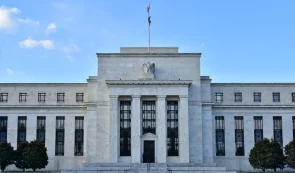BRICS Currency vs. U.S. Dollar: Uncovering the Key Distinctions

The BRICS nations are progressing towards establishing a new currency that would diminish the prominence of the U.S. dollar on the global stage.
Introducing this new currency could potentially challenge the dollar’s status as a global reserve currency and threaten the American economy. Consequently, the U.S. dollar finds itself at a critical juncture, where its continued global existence hangs in the balance.
Around 25 countries have expressed interest in joining BRICS and adopting the new currency for cross-border transactions.
One significant advantage that the U.S. dollar lacks is security. Unlike the U.S. dollar, which carries the risk of debt, the new currency offers a more secure alternative. The United States may default on its substantial federal debt of $31.46 trillion. Such a debt default would have far-reaching consequences for America and countries holding vast reserves in U.S. dollars.
Developing nations’ economies could suffer due to the destabilizing effects caused by the U.S. Federal Reserve’s missteps, placing local businesses at a disadvantage.
Additionally, the U.S. dollar fails to provide ease of doing business. The decision to launch a new currency stemmed from the BRICS alliance’s dissatisfaction with the United States’ practice of imposing sanctions on developing nations.
READ MORE: Current Gold Prices Point to a $45,000 Bitcoin Valuation, According JPMorgan
These sanctions create economic obstacles for Eastern developing nations, restricting their ability to engage in global trade. U.S. Treasury Secretary
Janet Yellen acknowledged that moving forward, sanctions would adversely affect America and not the other way around.
Lastly, the U.S. dollar lacks “native” economic strength. When international transactions are settled using the U.S. dollar, it perpetuates America’s deficit funding. As a result, the currencies of developing nations have limited opportunities for strengthening, as their own tender remains underutilized.
By engaging in trade with the new BRICS currency or their own native currencies, these developing nations can bolster their economies and reduce their reliance on the dollar.
In conclusion, this shift towards self-dependence allows developing nations to reshape their native economies in line with their own ideals.














